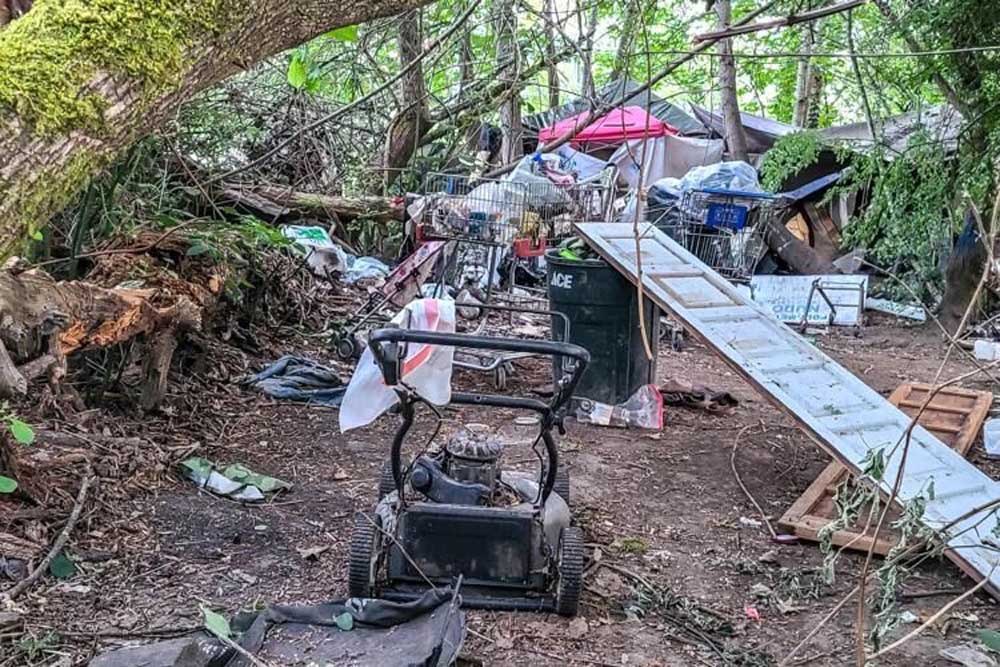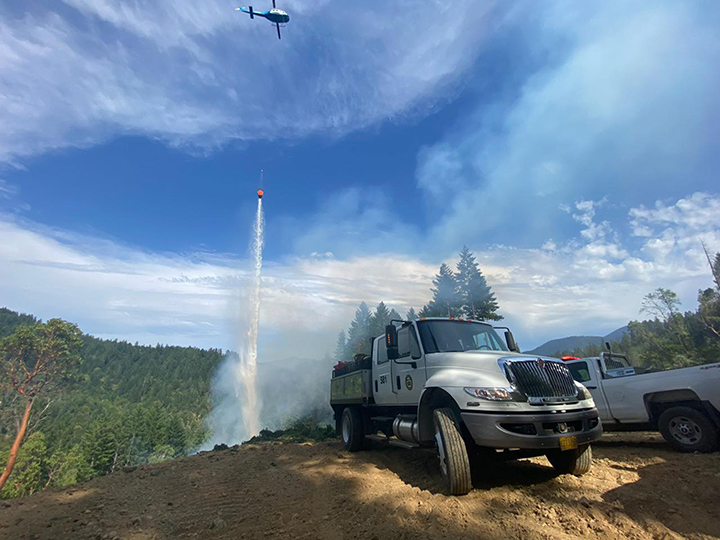Oregon bill aims to clean up homeless camps along waterways
Published 6:00 am Thursday, March 23, 2023

- A homeless camp along the South Umpqua River near Gaddis Park in Roseburg in May 2022.
Two Southern Oregon lawmakers have introduced legislation intended to rein in homeless camps located near the state’s rivers and streams, and clean up the pollution those camps create.
The proposed legislation would allow residents to file complaints of such pollution with the state Department of Environmental Quality and require the agency to investigate the complaints, clear out the camps and clean up the sites as necessary to protect state waters.
The chief sponsors of Senate Bill 1086 are Rep. Virgle Osborne, R-Roseburg, Sen. David Brock Smith, R-Port Orford, and Sen. Suzanne Weber, R-Tillamook. Nearly two dozen other lawmakers, all but one Republicans, sponsor the legislation. Sen. Brian Boquist, an independent from Dallas, also signed on as a sponsor.
The bill seeks to clean up the “human waste, illicit drugs, batteries and other harmful substances being dumped by homeless camps into state rivers and streams,” its sponsors said.
Osborne said the pollution caused by homeless encampments is widespread and harmful, and continues to grow.
“Our local cities have been fighting the pollution of our rivers and streams due to the unlawful camping taking place. Many of these camps are using our river as their toilet. Used needles, human waste, plastics, and many other items are finding their way into our waterways,” he said. This pollution is damaging our drinking water supply, our fisheries and frankly putting our citizens at risk when visiting our water ways. Our DEQ would never allow this kind of pollution from a company or establishment, yet it is tolerated when camping is unlawfully happening.”
Osborne said the bill is intended to “unburden” police, public works and other departments in local cities, which now are left to deal with the problem.
“Our state is willing to spend hundreds of millions of dollars from our general fund for adding homeless shelters and providing services and money to homeless individuals in urban areas. We are asking for our state to do the right thing and clean up our rivers and streams that are being damaged by those same activities,” he said.
“This bill will unburden our local cities, our police and our public works departments. This bill will contribute to lasting change while still being compassionate for those who need help and are homeless. The direction of the state is to move homeless folks to shelter. This bill will help get that started and clean up our rivers along the way.”
Smith echoed those sentiments.
“Tens of millions of dollars have been spent over the last decade in attempting to clean up sections of the Willamette River alone, only to have the current homeless encampments devastating those efforts and contaminating the river worse than ever. Becoming your senator and having my district now encompassing Roseburg and the Umpqua River (North and South), I have seen firsthand the environmental disasters that are occurring along various sections and we crafted this legislation so that these illegal activities are dealt with swiftly,” he said. ”What is additionally upsetting is the hypocrisy from the environmental activists that condemn our natural resource industries that take great care in protecting our watersheds, yet these same environmental activists ignore the very environmental disasters to riparian land and water quality that they vow to protect.”
Tom Murphy, a spokesman for the National Alliance to End Homelessness, said the proposed legislation ignores the root causes of homelessness, chief among them a lack of affordable housing.
“We all want and need for our communities to be clean, safe, and free of pollution. The most effective way we can accomplish this is to sustain the investments to ensure that everyone in our communities has a stable and affordable place to live,” Murphy said. “However, due to decades of underinvestment, no state in this country has an adequate supply of affordable housing for the lowest income earners, and this is the major driver of homelessness in our nation. It affects communities large and small; urban, suburban, and rural.”
Murphy also said clearing out encampments does nothing to address those needs and could make a bad situation worse for those involved.
“Without a dedicated, long-term housing-focused outreach strategy, people who are unsheltered will just be forced from one location to the next,” he said. “They will be at risk of losing their connections to the case managers working to connect them to housing and services, as well as losing their medications and the paperwork and identification needed to secure housing…Encampment raids are highly visible and they may appear to provide short-term cover to policymakers. But they are not in any way a strategy for actually solving homelessness.”
The potential cost of the legislation and how that cost would be paid for have not yet been analyzed.







